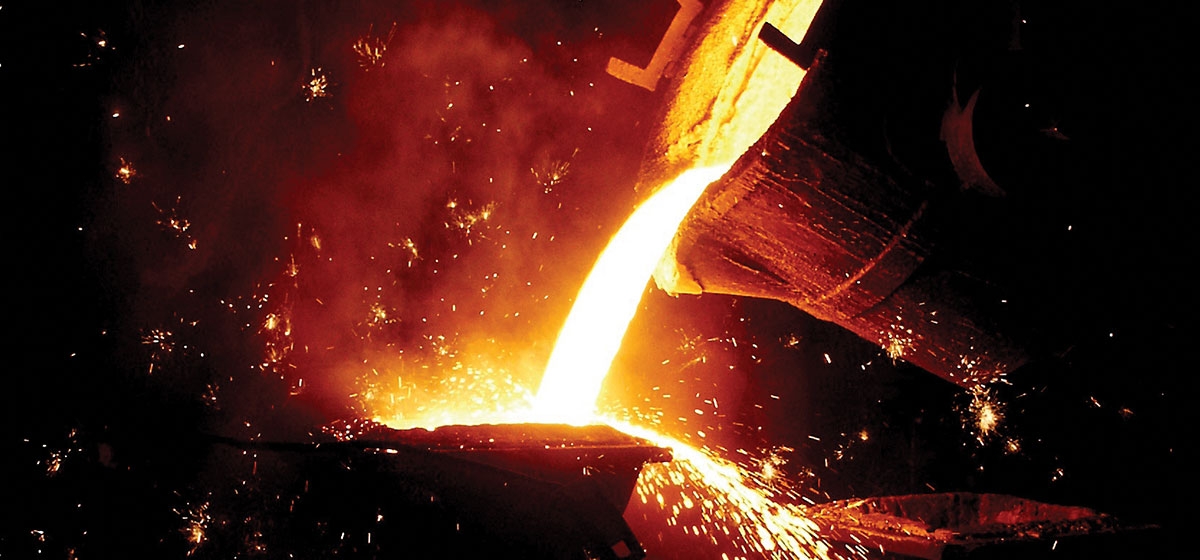Big Business Now and Then

Be careful what you wish for” is the adage that best applies to the McGraw family and their neighbors on the failed and failing dairy farms northwest of Scranton, Pa. After generations of scraping by, their dreams are finally poised to come true, now that corporate prospectors have come calling, offering buckets of cash in exchange for access to the coveted natural gas below their land that is the presumptive answer to America’s energy woes.
So why is everyone in “The End of Country” consumed by either dread or remorse?
Seamus McGraw, well known to Pittsburgh Quarterly subscribers as principal author of the magazine’s multiple-award-winning energy series, combines his knowledge of the Marcellus Shale with his equally distinguished talent as a crime writer to produce what can only be described as pulp non-fiction, providing an informative account of the sinister realities that surface when the drilling begins.
Although there is never any suggestion of criminality or violence in the book, the threads of suspicion, betrayal, greed, envy, cynicism and ecological menace that pervade it fairly scream backcountry noir, which the author exploits to great effect. When fate comes calling in the fall of 2007, one formerly independent, obdurate, rural landowner after another succumbs to the dark inevitability of progress and the siren call of cold hard cash, even as “the mad rush to pump money into the place [begins] to poison the community.” There may be no corpses, but prosperity delivers a mortal blow to the spirit of the place, destroying the rural ethos of “hard work and common purpose” that sustained the population in tough times, and signaling “the end of country.”
There is certainly more than a little of the archetypal gumshoe in McGraw himself when Seamus turns shamus to investigate the phenomenon. Portrayed as a hack with a history of hard drinking, who previously “didn’t know the difference between Marcellus Shale and Cassius Clay,” McGraw is the Sam Spade of Susquehanna County, drawn into the melodrama by pleas from his mother (cherchez la femme!) as she weighs an offer. He drives a junker, pawns his gun for cash, and uncovers more than he really wants to know about the industry, his neighbors and himself. He emerges as neither a chump nor a champion, but as a poet, philosopher and all-too-human father of four who can ill afford the “luxury of self-righteousness.”
Here, at his hardboiled best, he overcomes his reluctance and plunges into the fray: I reached into the pocket of my jeans and fished out a couple of crumpled singles to pay for my coffee. I had better sell a story, and soon, I thought. My cash reserves were running perilously low, low enough that when [the waitress] handed me back a few pieces of silver in change, I pocketed them instead of leaving them for a tip. I tried not to make eye contact as I did it, and then I stepped outside and climbed behind the wheel of my car just as a large tanker truck lumbered past me, heading down the rutted road toward the hollows where Ken and Rosemarie and Cleo and that woman lived. I followed it.
That road leads to a full complement of characters, every one of them flawed in his or her own way; every one of them minimizing the hazards of the industry and believing what they must in order to profit from an operation festooned with metaphorical red flags.
The clean-cut land agent who finally signs the McGraws relishes his work as a game in which the player with the most land wins, yet describes himself as an “asshole” and admits to “killing” the county. Penn State professor Terry Engelder suffers cold sweats and second thoughts over the socio-economic consequences of his ever-inflating estimates of the volume of fuel contained within the shale (500 trillion cubic feet), but nevertheless styles himself the “godfather of the Marcellus” and glories in upstaging his professional colleagues. (In an interesting aside, we learn that Engelder believes the cracks that spread across the paint on the face of DaVinci’s “Mona Lisa” mirror the geological fissures of the Marcellus Shale; thus proving, one assumes, that her enigmatic smile is attributable to gas…)
Victoria Switzer, who retired to the countryside to construct her dream house, is seduced into complicity by the image of herself as a pioneer in a “green” field, only to find the purity and serenity of her surroundings compromised along with her ideals. On the opposite end of the spectrum and the other side of her property line lives Ken Ely, a rock farmer who has been blasting and excavating on his property for years. He feels no compunctions about drilling and welcomes his leasing arrangement as an opportunity to stick it to The Man in the form of added costs for road construction and water use. He overlooks the periodic spills and the leaking contaminants that poison the fish in his pond, but when workers cover up the accidental death of his coonhound, Ken realizes that no one is minding the proverbial store, and takes it upon himself to hold the industry accountable for its actions. That he should die in the midst of his crusade conveniently enhances the fatalistic, novelistic qualities of the book.
Most affecting of all is Seamus McGraw, who struggles long and hard with his conscience over an arrangement that in light of his investigations doesn’t feel right, but is just too lucrative to resist. Like other hardboiled antiheroes, he is forced to traffic in moral relativism, choosing between unsatisfactory alternatives and confronting his own character weakness.
It will be many years before it is known how the story of the Marcellus play plays out, but McGraw’s perceptive, unsparing contribution to the literature of the great gas rush of the 21st century is a ready-made classic in an original genre.
In constrast to “The End of Country,” the “Eminent Pittsburghers” profiled in William S. Dietrich’s new book of the same name suffer no ambivalence about the exploitation of natural resources, nor anything else. They are “action men” unencumbered by doubts, whose “aggressiveness smashes through every roadblock posted by common sense.” They “never think small” and scorn anymanifestation of reluctance as a carnivore sneers at salad.
Their characters are vividly rendered by the author, whose admiration for his subjects is palpable and infectious. Dietrich, the retired president of Dietrich Industries and current Trustee of the Dietrich Charitable Trusts, has a distinctive, energetic writing style that is perfectly suited to his material. He originally created these profiles for Pittsburgh Quarterly, where they ran as popular features from 2006 to 2010. Individually, they provide interesting information and entertaining reading. Together, they convey a romantic, idealistic vision of Pittsburgh as a virile city dominated by men’s men, in which the greatest adventure of all is the unfettered pursuit of progress and prosperity.
No less a personage than George Washington, in his role as a speculator with the Ohio Company of Virginia, lights the flame of the region’s go-go, can-do torch in the introductory chapter, and passes it along to Andrew Carnegie, H.J. Heinz, George Westinghouse, Henry Clay Frick, A.W. Mellon, Charles Schwab, Michael Benedum, George C. Marshall, David L. Lawrence, Thomas Detre and Dick Simmons.
Although the majority of these subjects are Gilded-Age industrialists whom Edith Wharton termed the “Lords of Pittsburgh,” there are some exceptions. Lawrence was the political boss who engineered the city’s first renaissance; Marshall, a five-star general; Detre, the doctor behind the development of UPMC; and Simmons, a contemporary corporate leader and civic philanthropist in the grand tradition.
There are many omissions, as well: no women, no minorities, no social reformers, no representatives of the arts. (The inclusion of a lone Catholic and a single Jew are as close as the book comes to celebrating diversity.) But this collection is not intended as a comprehensive catalog of the region’s most notable citizens. Rather, it represents the author’s personal pantheon, with subjects conforming to a businessman’s executive ideal: thinking big, taking risks and acting with authority.
In addition to their considerable professional accomplishments, these men also possessed, or possess (Simmons is still going strong), a personal courage that is truly remarkable. Wildcatter Michael Benedum dismounted from his horse to face down a group of armed men in an oil-lease dispute, and George Marshall strode uninvited into the White House to demand a military commission from President McKinley. Henry Frick not only survived an assassination attempt, but, wounded, tackled his assailant. And Tom Detre avoided a Nazi death camp in his youth by recognizing an opportunity and acting swiftly and decisively.
If some of them erred by inciting violence in the Homestead strike (Frick), precipitating the 1929 market crash (Mellon), committing fraud (Schwab), or accepting kickbacks (Lawrence), well, nobody’s perfect. Dietrich makes it easy to forgive their shortcomings, using expressions such as “riding the tiger” and “baiting the bear,” which channel Ernest Hemingway and make a virtue of ethical flexibility. In the words of the masculine anthem popularized by Frank Sinatra, they “did it their way”; doing “what they had to and seeing it through without exemption.” And Dietrich does, too, often mixing metaphors without concern for compatibility or correctness, but successfully conveying the essence of his subjects and convincing readers of the heroism of a white-collar world.





